My Year of Bookish Wisdom: 2021
by Miles Raymer
We’ve Come So Far and We’re Right Back Where We Started
What a strange year this has been! In some ways, 2021 felt like a time of incredible progress. COVID vaccinations became widely available, most schools and businesses resumed normal operations, and many people became more social and started reentering public spaces. There are also promising new medications available that can ease the symptoms of people who get infected. I am much less hunkered down today than I was a year ago, and even went to a couple concerts this fall! On the political front, we Americans got ourselves a new President who, while by no means perfect, has returned a sense of basic stability and decency to our political system.
In other ways, 2021 felt like a rerun of 2020. COVID continued to be a problem that wouldn’t go away, and the rise of the ultra-infectious Omicron variant promises to spike case counts again this winter––possibly even higher than last year. I’m not expecting more lockdowns––at least not in my region––but it’s tough to predict what the next few months have in store. My family and I have all accepted that we’ll most likely get COVID sometime in the next year, despite being fully vaccinated and boosted as of this fall. As many people have said from the start, the virus is here to stay, and we’re in the process of inventing “new normal” practices for our social and professional lives.
So, as 2021 comes to a close, I’m feeling a weird combination of fresh energy and stuck in the mud. Thankfully, I had the good fortune once again to spend my year reading some truly wonderful books.
Nonfiction
When I started delving deeper into psychology and therapy last year, a friend recommended Terrence Real’s I Don’t Want to Talk About It.

Real’s detailed discussions of covert depression, passive trauma, male gender socialization, and relational heroism were enlightening, providing opportunities for me to reflect on my own identity and that of the men around me. I was also inspired by Real’s characterization of “mature manhood”:
Service is the appropriate central organizing force of mature manhood. When the critical questions concern what one is going to get, a man is living in a boy’s world. Beyond a certain point in a man’s life, if he is to remain truly vital, he needs to be actively engaged in devotion to something other than his own success and happiness. (322)
This was really the perfect message for me this year––one from which I drew much motivation and solace.
After catching fire in 2020, America’s most recent racial reckoning continued to blaze through 2021. In our collective efforts to grapple with issues of equality, equity, and what America’s racial history means for our present and possible futures, Heather McGhee’s The Sum of Us is a welcome guide.
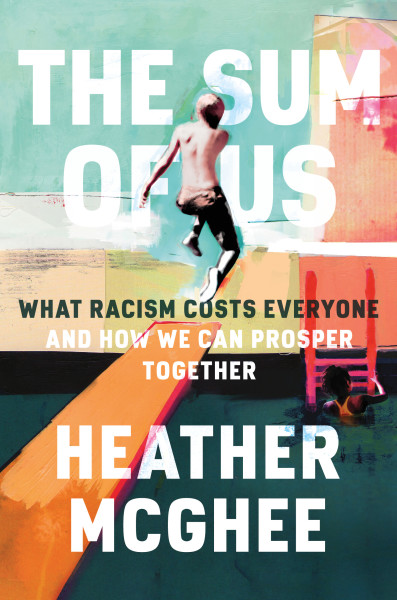
McGhee’s theory of “zero-sum racism,” which has for generations pitted members of different ethnic backgrounds against each other and “drained the pool” of America’s public resources, goes a long way in explaining how we got to this moment and how we can facilitate progress moving forward. The inclusive character of McGhee’s approach is powerful and unifying, reminding us that everyone suffers when our social, political, and economic systems become infected with discrimination and bias.
In this time of turbulent ups and downs, we all need places to take quiet refuge. For those of us who seek out comfort in the written word, David Whyte’s Consolations is an extraordinary resource.
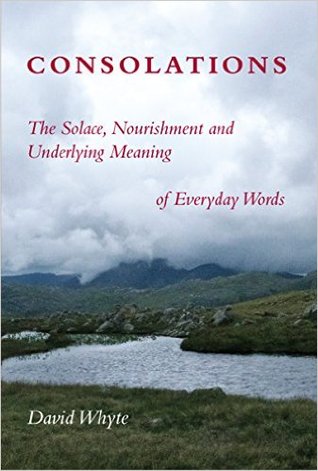
Consolations is unlike any other book I’ve read. It’s comprised of more than fifty very short essays that each define a single word. Combining the linguistic tools of poetry with unflinching honesty and deep wisdom, Whyte’s prose absolutely bursts with vitality and meaning. In my review, I took a crack at imitating this style. The book is infinitely quotable, and now has a permanent home in my backpack so I may carry it with me always.
Given the impossibility of keeping up with the sheer volume of intellectual work being done these days, it’s easy to get cynical about the possibility of encountering a work of philosophy that’s truly groundbreaking. And although it still makes me nervous to endorse such a strong claim, I’ve come to believe that Toby Ord’s The Precipice may be one of the most important philosophical works of this or any era.
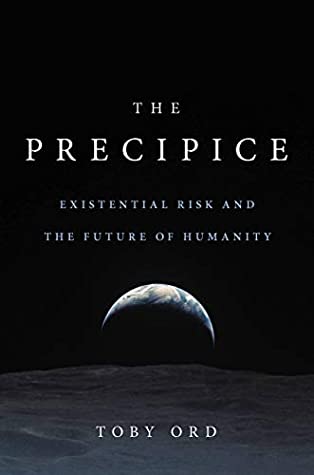
You’ll have to read my review for all the reasons why I think this book is so important, but the short version is that Ord is attempting the heroic task of applying the basic principle of humanism––that each member of the human species has special value and potential––not just to everyone alive right now, but also to everyone who might live in the future. He combines this concern for what philosophers call “longtermism” with a deep analysis of existential risks, which are risks “that threaten the destruction of humanity’s longterm potential” (6). The result is a shockingly-ambitious and yet surprisingly-accessible treatise that takes the project of ethics to a whole new level.
Tools for Growth
Ma and I used some of our COVID downtime to tackle a series of home infrastructure projects that we’ve been considering for a long time. The most significant of these were our transition to ductless electrical heating/air conditioning units, and installing a new 7.9 kWp solar power system.

New electrical heater/AC unit for the main living room
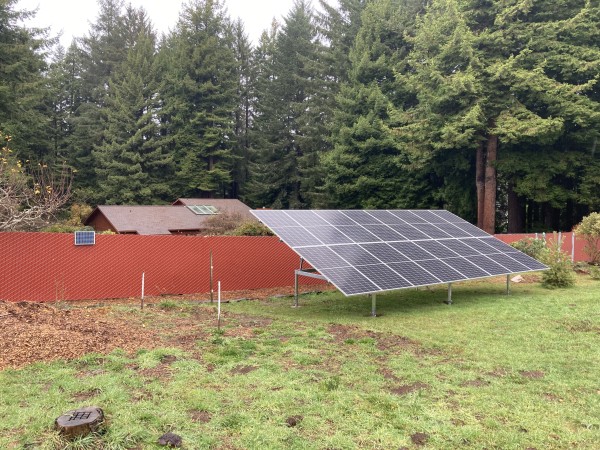
Solar panels
Jessie and I are really grateful to Ma for helping to coordinate scheduling for these upgrades, and also for footing the bill. We figured that this was one of the best ways to put some of our family’s inheritance money to work, both for ourselves and for the environment. We also got to work with some excellent local contractors, which was a bonus. With this new technology, our power costs will go down significantly, as will our home’s carbon footprint.
On a personal level, my main tool for growth in 2021 was ramping up my local volunteering activities. When I learned in March that my application to HSU’s Counseling MA Program had been rejected, I decided to spend the next year trying to get more experience in the field of caregiving. I’ve pursued a few different projects that have worked out well, and the most impactful of these by far has been my work as a patient care and grief support services volunteer at Hospice of Humboldt.
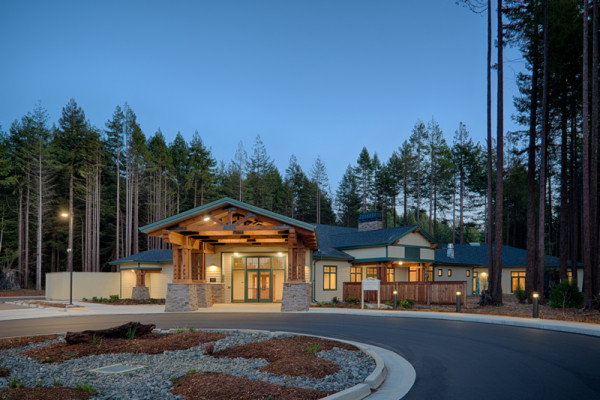
The Ida Emmerson Hospice House in Eureka
I can’t even begin to heap sufficient praise on this organization and the wonderful individuals who run it. The people and culture of Hospice have taught me so much about patience, professionalism, and compassion. They have welcomed me, trained me, and given me numerous opportunities to help dying people and their loved ones through life’s hardest and most profound transition. This work also inspired me to write a short poetry series called “Passage Poems” (you can read the first one here if you’re interested, and the rest are easy to access in the “Dirt” section of the blog).
I discovered lots of great tunes this year as well. Here are the highlights:
Engine of Hell by Emma Ruth Rundle
Favorite Track: “In My Afterlife”
Rundle has been one of my favorite singers for nearly a decade now, and I think this new album may be her best yet. Her voice and lyrics are as courageous as they are haunting.
alligator/beach by Madison Stubblefield
Favorite Track: “pittsburgh snake”
I discovered this terrific album because Madison is engaged to one of my best friends. He created alligator/beach during the COVID lockdown, and it’s been my go-to album for hanging out with friends and general relaxation since its release in September.
Inside (The Songs) by Bo Burnham
Favorite Track: “That Funny Feeling”
As far as I’m concerned, Bo Burnham’s Inside is a work of genius, and ought to be remembered as the definitive piece of COVID pop art. These songs are like a time machine for anyone who wants to revisit the funniest, saddest, and weirdest moments of the pandemic. If you haven’t watched this incredible comedy special yet, get on it!
Forlorn by Those Who Ride With Giants
Favorite Track: “The Resilience Born in Fire”
Those Who Ride with Giants was an unexpected and delightful addition to my music library in 2021. Great combination of calming and edgy vibes.
Horror Show EP by The Midnight
Favorite Track: Cover of “Because the Night feat. Nikki Flores”
Over the summer, Jessie’s cousin and their partner introduced me to The Midnight. I’ve been loving the whole discography, which combines classic ’80s sounds with modern electronica, plus excellent vocals.
Infinite Granite by Deafheaven
Favorite Track: “In Blur”
This was a recent recommendation from a friend in the UK. I haven’t been able to connect with Deafheaven’s work in the past, but this new album hits a special sweet spot for me––hypnotic and revitalizing.
Fiction
After being wowed by Toni Morrison’s Sula last year, I decided to read Beloved this year.

Like so many readers before me, I learned that this book is an absolute masterpiece. The writing, the characters, the story––they’re all superb and blend together perfectly. The book is bursting with poignant insights about the nature of freedom, suffering, racism, family, memory, trauma, healing, humanism, and much more. It’s also terrifying and punishing, so be prepared to battle to keep your wits about you if you decide to take the plunge. It’s worth it.
The latter half of my year was blessed by a trio of exceptional science fiction novels, all of which provided wonderful escapes from the daily grind. The first of these was Andy Weir’s Project Hail Mary.
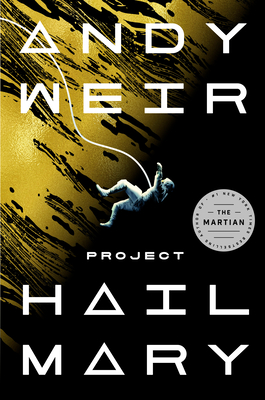
I belong to the tiny fraction of scifi enthusiasts who didn’t read Weir’s phenomenally-successful breakout novel, The Martian. For whatever reason, it just didn’t appeal to me, although I enjoyed the film adaptation. But when my wife, friends, and favorite podcasters started gushing about Project Hail Mary, I decided it was time to send myself rocketing into Weir’s geeky orbit. This narrative mixture of science puzzles, apocalyptic scenarios, and buddy comedy elements had me giggling and sobbing at all the right moments.
Last year, I raved about Ada Palmer’s amazing Terra Ignota Quartet. She finished the series this year with Perhaps the Stars.
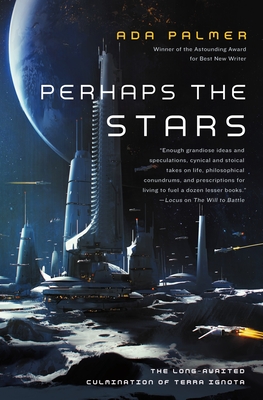
Palmer’s 25th-century future is, above all else, a vision of courageous optimism in which even the ostensible villains generally strive to uphold the core tenets of humanism and prevent loss of life whenever possible. I can’t begin to enumerate the diversity and depth of the ethical battles these books fight on behalf of a better future for humanity and life more generally. Most authors would be lucky to exhibit commensurate creativity and insight in an entire career, let alone a single series. Terra Ignota not only secures Palmer’s place in the highest echelon of science fiction authors, but earns her a position as one of our finest living writers in any genre. I can’t wait to see what she comes up with next.
I ended the year with Neal Stephenson’s new novel, Termination Shock.
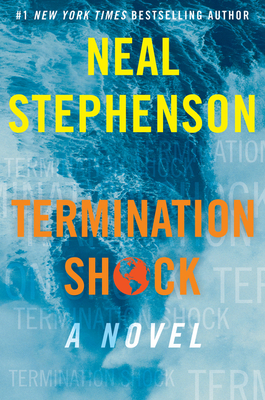
Termination Shock follows a diverse group of near-future Earthlings who are struggling with various ill effects of climate change––primarily sea level rise. I don’t have much to say about this novel…yet. It’s shaping up to be the centerpiece of new writing project that I’m considering for next year. For now, I’ll just say that although I don’t think this is technically Stephenson’s “best” or “most impressive” novel, I think it’s almost certainly his most important novel. It’s the only book I’ve ever started rereading immediately after finishing.
Changes Ahead
To be entirely honest, in recent months I’ve slipped into a position of profound uncertainty regarding the future of Words&Dirt. Since starting this blog in 2013, the purpose of the site has been very clear to me, even as individual writing projects have evolved, expanded, and diminished over time. The blog’s purpose was to create and maintain a space in which my intellectual growth and self-education could proceed unfettered. After I earned my undergraduate degree and chose to eschew a traditional career path, Words&Dirt served as a kind of habitual anchor––the thing that remained consistent throughout my adulthood as everything else shifted around it.
Undoubtedly, the backbone of my work has been a steady stream of book reviews. I’ve written more than 400 of these over the last decade, starting on Goodreads in 2012 and then cross-publishing on Words&Dirt beginning in June of 2014. They haven’t all been as extensive or nuanced as I would like, but they exist, and a handful of them appear to have been read by quite a few strangers over the years. My personal journals, essays, and poems have also brought a bit of diversity to the blog’s offerings. To do a quick quantitative summary, this includes 7 bookish wisdom essays, 17 pandemic journals, 14 passage poems, 2 obituaries, 2 travel journals, 6 other essays on various topics, and 40ish “dirt” essays documenting gardening and building projects at the house. I’m not sure how this stacks up in terms of quality and quantity for a “real” writer, but to me it feels like a fine body of work.
It might sound like I’m about to announce the end of Words&Dirt, but I’m not. If I’m able to get into graduate school this year, then my first semester will begin next fall, which gives me roughly eight months from now to keep creating content before my writing energy gets absorbed by school. And if I don’t get into school, I’ll need to seek out a job fairly quickly, in which case I will also have less time for blogging. So a proper retirement or semi-retirement might be on the horizon, but we’re not there just yet.
The main message I want to deliver today is that I think the character of the blog will be changing this year. I’m really burned out on book reviews, and have felt for a while that my reviews are becoming increasingly perfunctory and lifeless. I’m running out of ways to say that I like or dislike something––there’s just not much of a creative spark there anymore. Additionally, with my recent turn toward caregiving, listening, and therapy, the act of criticism feels less relevant and urgent than it used to. So, for the first time since the blog’s inception, I’m going to refrain from reviewing every single book I read. I might stop writing reviews altogether.
I’m not too sure about what comes next. I do have one nascent idea for a book review/personal essay hybrid that I may submit to an annual book review contest, so I plan to spend the next few months getting that off the ground. Beyond that, we’ll see. If you have suggestions about particular topics and/or book reviews you’d like me to take on, now would be the right time to pitch an idea.
If I ever retire Words&Dirt or decide to take an extended hiatus, I’ll be sure to write a proper send-off. For now, dear readers, you can expect somewhat less content than usual, but hopefully whatever I do put out will be more interesting and creative. Thanks as always for engaging with my work at whatever level serves you––it means the world to me.
Miles,
As regards the evolution of, and possible “retirement” of, Words & Dirt, I am wholeheartedly supportive of evolution however I fervently hope that retirement is not on the horizon either short or long term. Your writing inspires and illuminates and serves, for me, a much appreciated window into your life that I cherish (having known you all your life but having been just far enough away geographically to have made in-person visits way too far in between).
So count this as a vote for you to not only keep writing (which I know you will in some form), but to keep sharing your writing.
Happy holidays!
J
Thanks Jim! It’s quite possible that you are my most devoted reader, and I can’t tell you how grateful I am for that! I’m glad the blog has played such a positive role in your life over the years, and I’ll do my best to keep producing work that’s worthy of your attention. Sending love from Humboldt and wishing you a very Happy New Year!
I agree with Jim. I certainly understand wanting to slow down or end the reviews (however good I felt them to be), but I hope you don’t stop writing in it and allow it to evolve into whatever it might become. Cheers to another year of Words and Dirt.
Thanks Dad! I’m working on a new standardized template to replace the book reviews––something that’ll be more like a brief summary + notes, with maybe a few quotes as well. Will be considerably less artful than the reviews, but should be easier to produce and hopefully will still serve as a useful resource for readers. 🙂